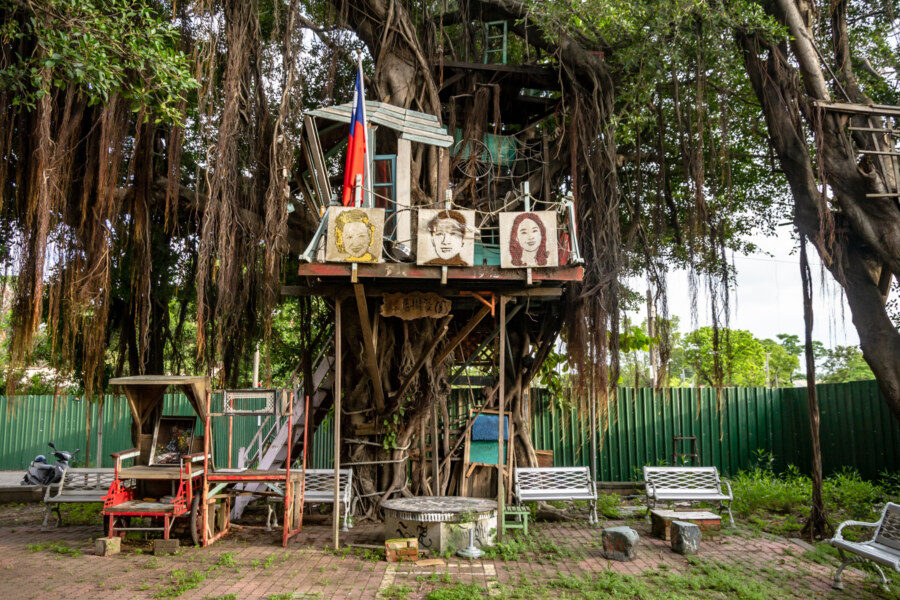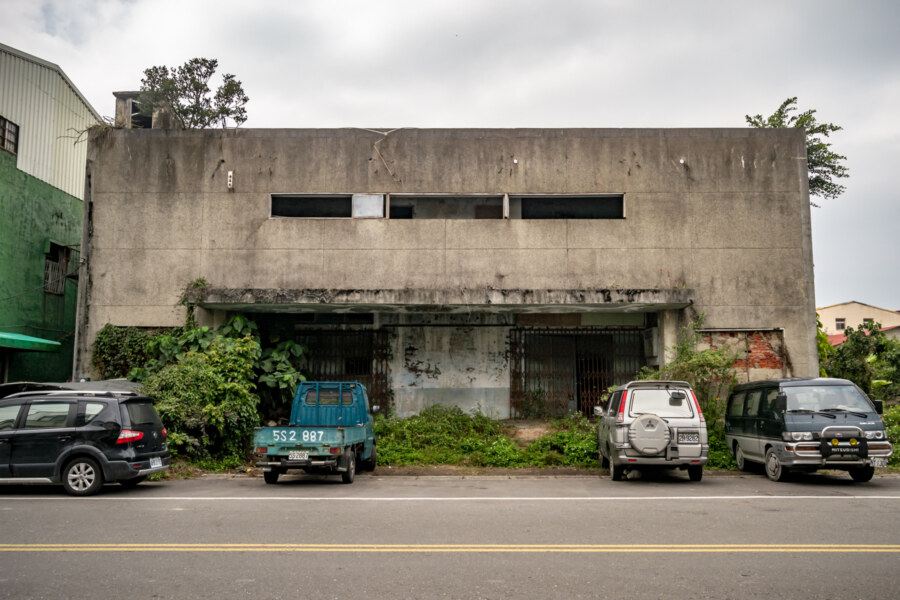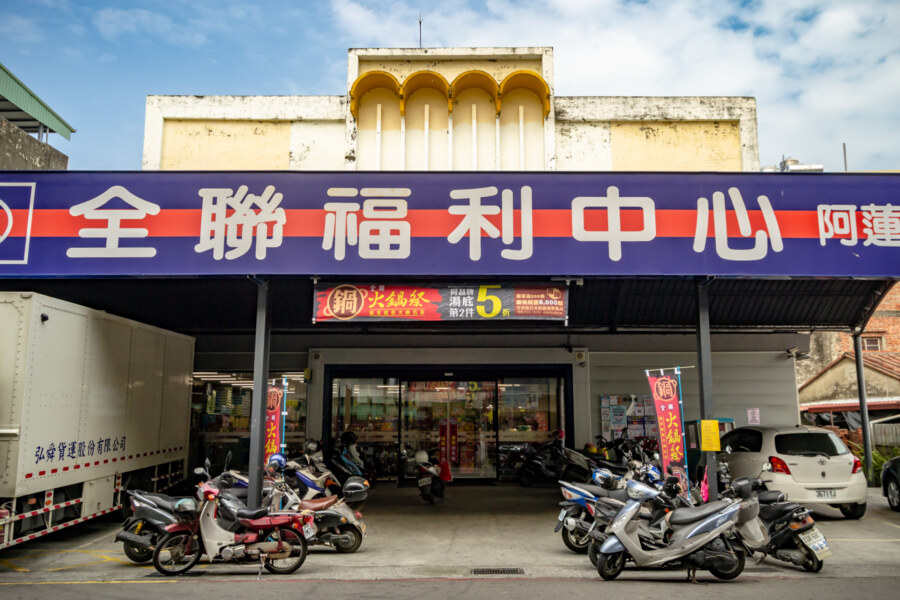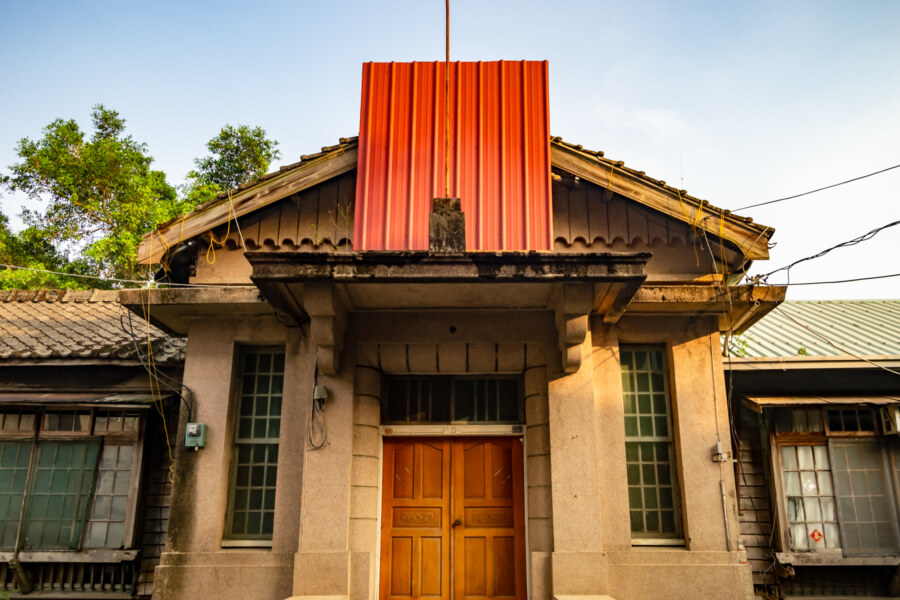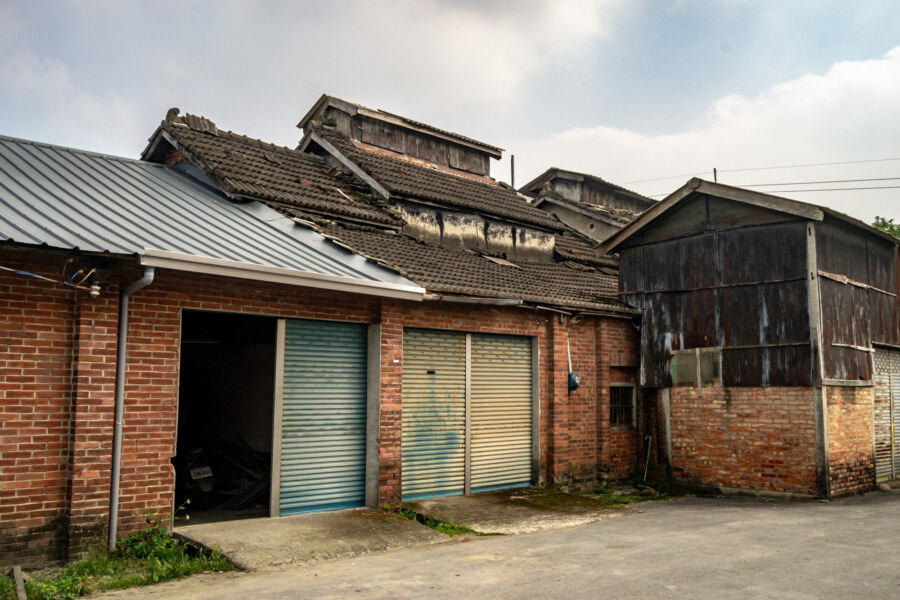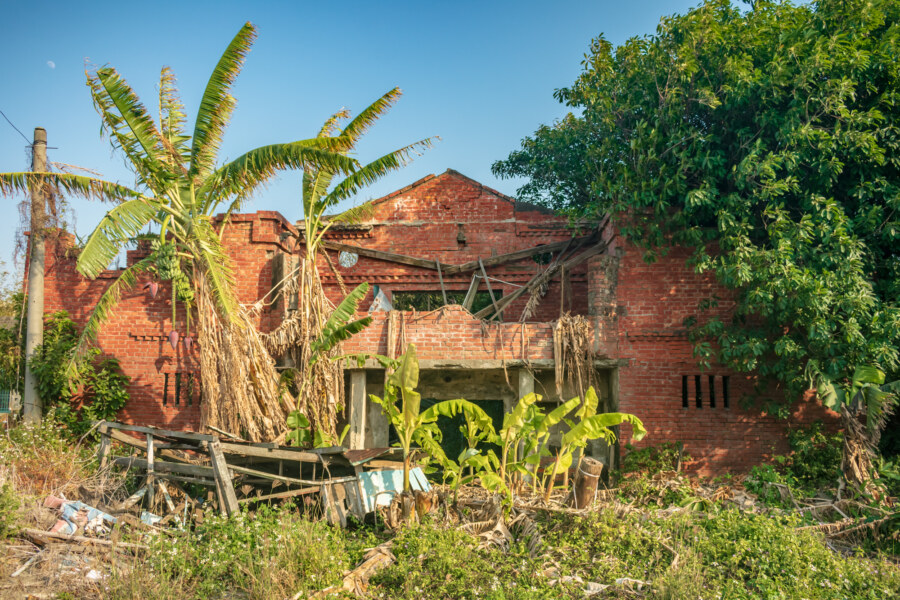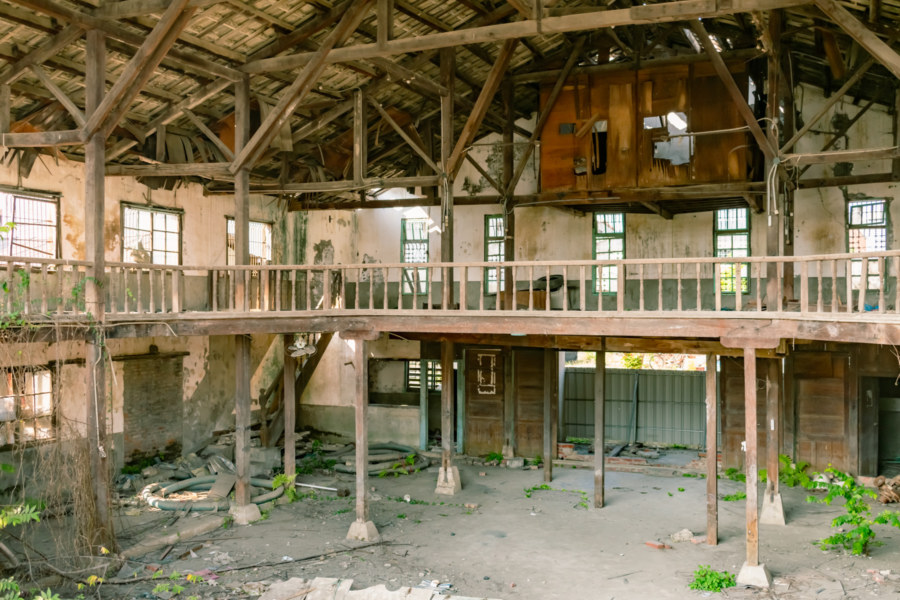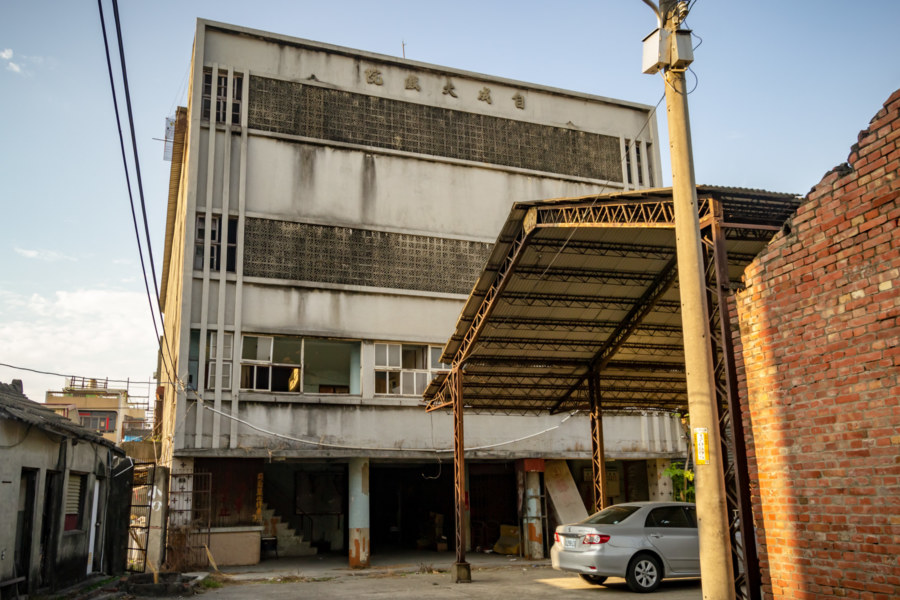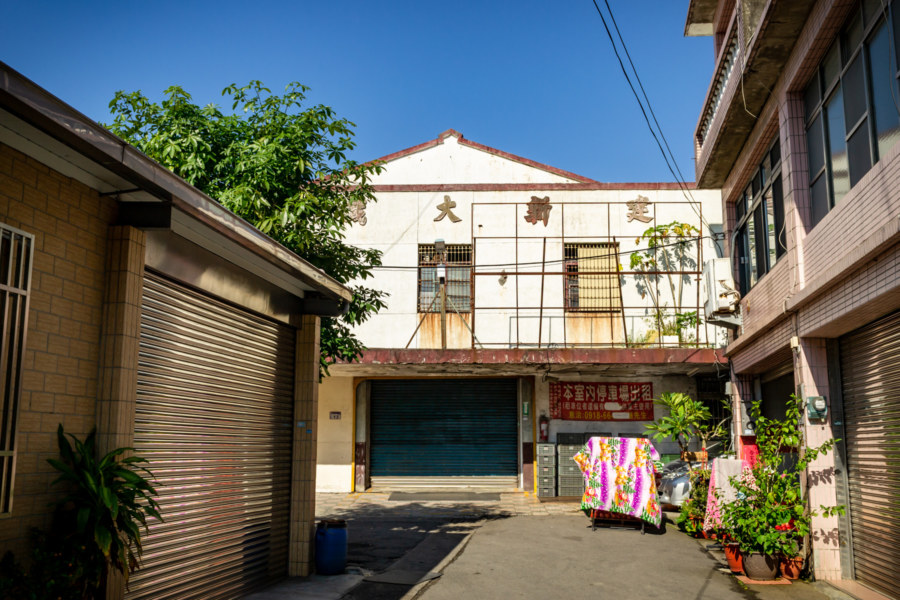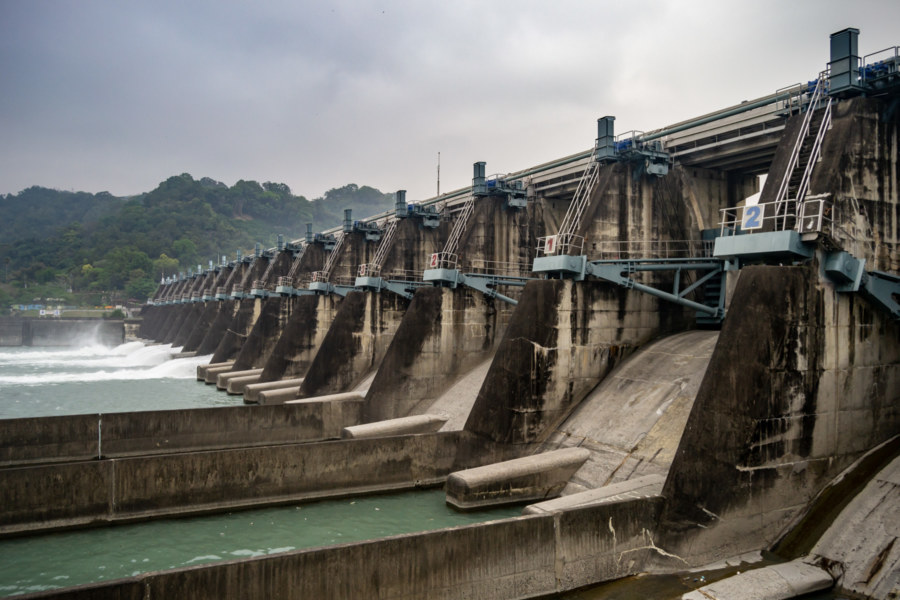The Second Air Force New Village (二空新村) is a former military dependents’ village in Tainan, Taiwan. It was established east of Tainan Airbase in 1950, primarily for members of the Republic of China Air Force and their families, and it eventually grew to become the sixth most populous of the official military villages in Taiwan. From 1950 into the 1960s several waves of construction and development increased the village to nearly 1,000 households, with a sizable number of unregistered structures scattered around the periphery. As with most other military villages this one was steadily dismantled and demolished over the course of many years in the late 2000s and early 2010s, part of a nationwide urban renewal program that relocated the remaining residents into more modern apartment blocks.
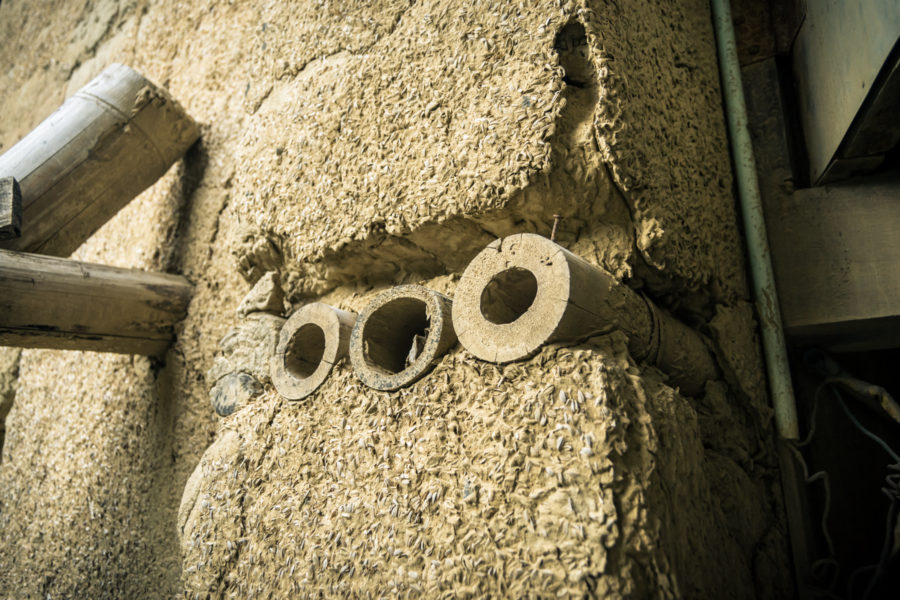
A means of organizing content around building material.
Adjacent Terms
Nanxi Huazhou Theater 楠西華洲戲院
Huázhōu Theater (華洲戲院) is a long-abandoned cinema located in Nanxi, a rural district nestled in the low hills of eastern Tainan, Taiwan. Easily reached via Provincial Highway 3, the main settlement in Nanxi is situated along the middle reaches of Tsengwen River, the fourth longest in the country. Nanxi, like most other parts of rural Taiwan, has suffered an almost continuous population outflow for decades, with household registration numbers almost halving from around 14,000 in 1981 to merely 8,000 in 2023. With so many people departing in search of opportunity in bigger cities we are left to wonder, what inspired the construction of such a large theater in this downtrodden town?
Alian Theater 阿蓮戲院
Alian (阿蓮) is a rural township at the northern extent of coastal Kaohsiung, right on the border with Tainan, in southern Taiwan. Although it isn’t a very busy place nowadays, it was once home to two movie theaters, only one of which remains in any form. This is the eponymous Alian Theater (阿蓮戲院), in business since the 1960s, and now a branch of PX Mart (全聯福利中心), the largest supermarket chain in the country.
Toubiankeng Police Station 頭汴坑警察官吏派出所
Tóubiànkēng Police Station (頭汴坑警察官吏派出所) is a remarkably well-preserved Japanese colonial era building situated in a small settlement in the foothills of eastern Taichung, Taiwan. Originally established in 1914, the station was reconstructed to standard specifications with reinforced concrete, red brick, and local cypress, likely in the early 1930s. Not only was it a police station, but it also served as a dormitory for the officers stationed here, agents of a colonial authority keen to extend control into the rugged mountains to the east. After the ROC assumed control of Taiwan operations continued much as before, and was only decommissioned in 1981 when a new police station was built immediately out front.
Postcards From Linnei 林內明信片
Linnei is a small rural township located on the south side of the Zhuoshui River in northeastern Yunlin, Taiwan. Despite its strategic position on the Western Trunk Line this township remains mostly pastoral and undeveloped, with little industrial activity compared to neighboring Douliu, the administrative seat of the county. Population in the township peaked at nearly 23,000 in the 1970s and has been declining ever since, recently falling below 18,000 as rural flight continues apace. Nowadays the local economy mostly revolves around agricultural products such as rice, bamboo, and tea, but Linnei was once a major center of tobacco cultivation, traces of which can be found scattered across the countryside.
Kouhu Theater 口湖戲院
The overgrown ruins of Kǒuhú Theater (口湖戲院) can be found along a dusty country road on the outskirts of Kouhu, a desolate town in coastal Yunlin, at the westernmost extent of the Taiwanese mainland. Its most distinct feature is the exposed red brick facade, which might be unique among those vintage theaters still standing in earthquake-prone Taiwan. Not much is written about this old theater online, possibly due to its obscure location in the remote countryside, but it dates back to the early 1950s and likely remained in operation into the early 1980s.
Ruimao Theater 瑞茂戲院
Ruìmào Theater (瑞茂戲院) is an old wooden theater hidden in the winding laneways of Guògōu (過溝), a small fishing and farming village in remote coastal Chiayi, Taiwan. Nobody seems to know exactly when this theater was established, although there is general agreement it likely dates back to the early post-war era. Remarkably, it was one of two theaters in this settlement, and one of maybe a dozen along this stretch of coast in the 1970s, when salt production and oyster farming buoyed the local economy. As with most other theaters of its vintage, this one closed sometime in the 1980s.
Zicheng Theater 自成大戲院
Zìchéng Theater (自成大戲院) is a derelict cinema located in Baozhong, a rural township on the coastal plains of Yunlin, Taiwan. After opening in 1966 this theater drew enormous crowds from the surrounding districts, particularly in its early years of operation, when it was customary for movie stars to appear on stage to promote new films. Business began to decline with the closure of the nearby sugar factory and the widespread adoption of home television in the late 1970s, ultimately leading to the final screening sometime around 1985. Since then the theater has remained idle, slowly decaying with the passage of years, its fading fortunes mirroring those of the surrounding settlement.
Daxi Jianxin Theater 大溪建新大戲院
Jiànxīn Theater (建新大戲院) is located in Yuánshùlín (員樹林), a suburban area on the western outskirts of Daxi in Taoyuan, Taiwan. Business records indicate an inception date of 1977, but not much is known about this theater apart from that. The last recorded transaction in 2000 sets an upper bound on when it was operating, but likely went out of business in the early 1990s, when most of the rest of Taiwan’s cinema industry collapsed. It now enjoys a second life as a parking garage for the nearby factories and residences.
Shigang Dam 石岡水壩
Shigang Dam 石岡水壩 is a barrage dam on the lower reaches of the Dàjiǎ River 大甲溪 in Shigang, Taichung, Taiwan. It was constructed between 1974 and 1977, not long after the completion of the Techi Dam 德基水壩, a far more ambitious hydroelectric project further upstream. Intended mainly for flood control and irrigation purposes, it was heavily damaged in the devastating 921 Earthquake of 1999 and later repaired. Despite its diminished capacity, Shigang Dam continues to serve an important function in regional water distribution across Taichung.
